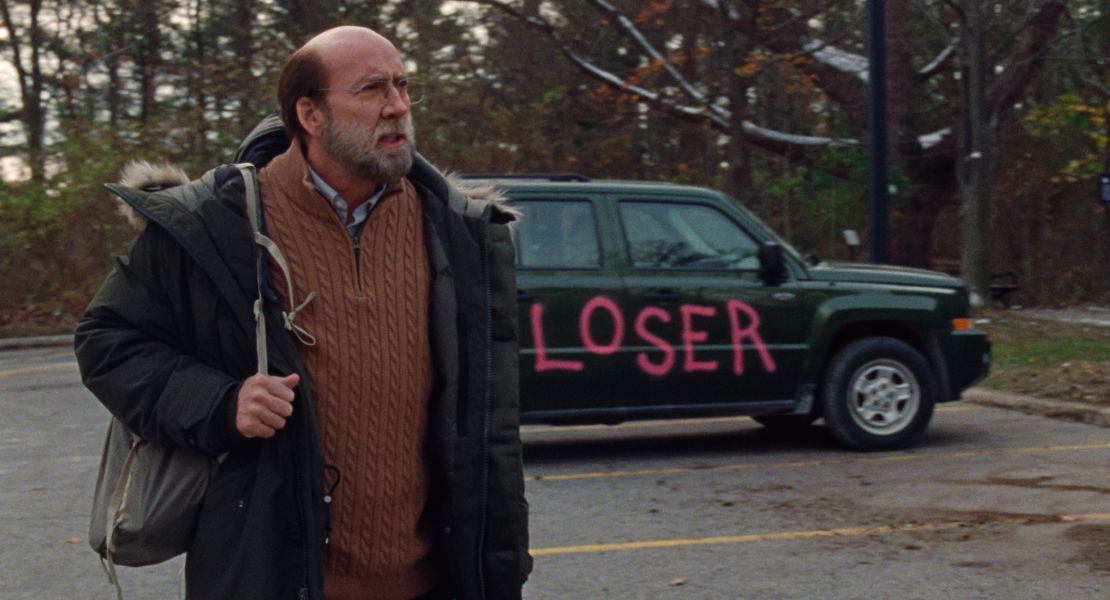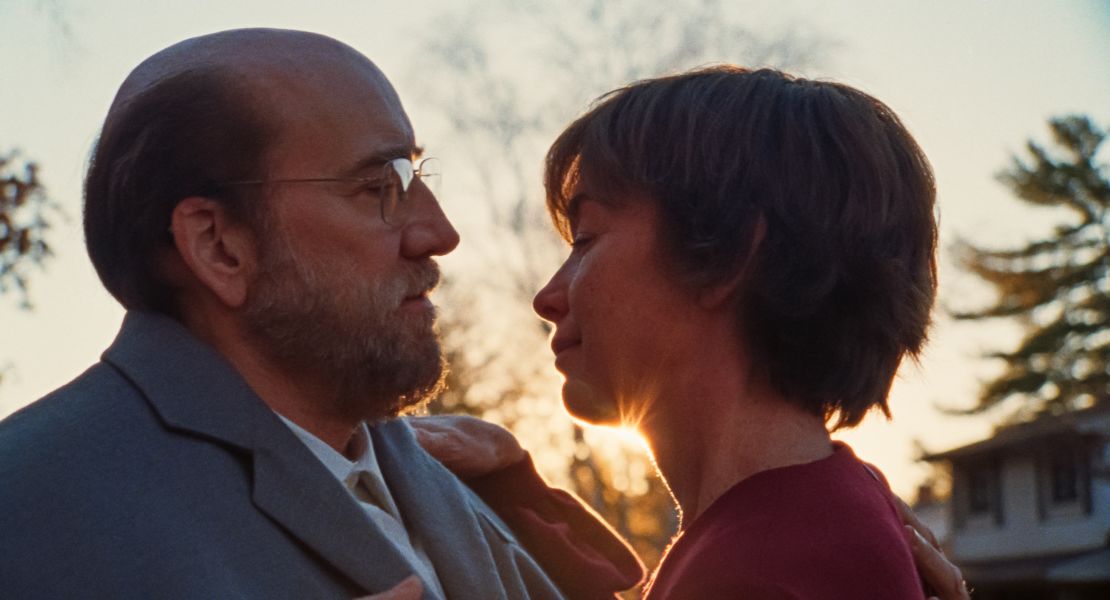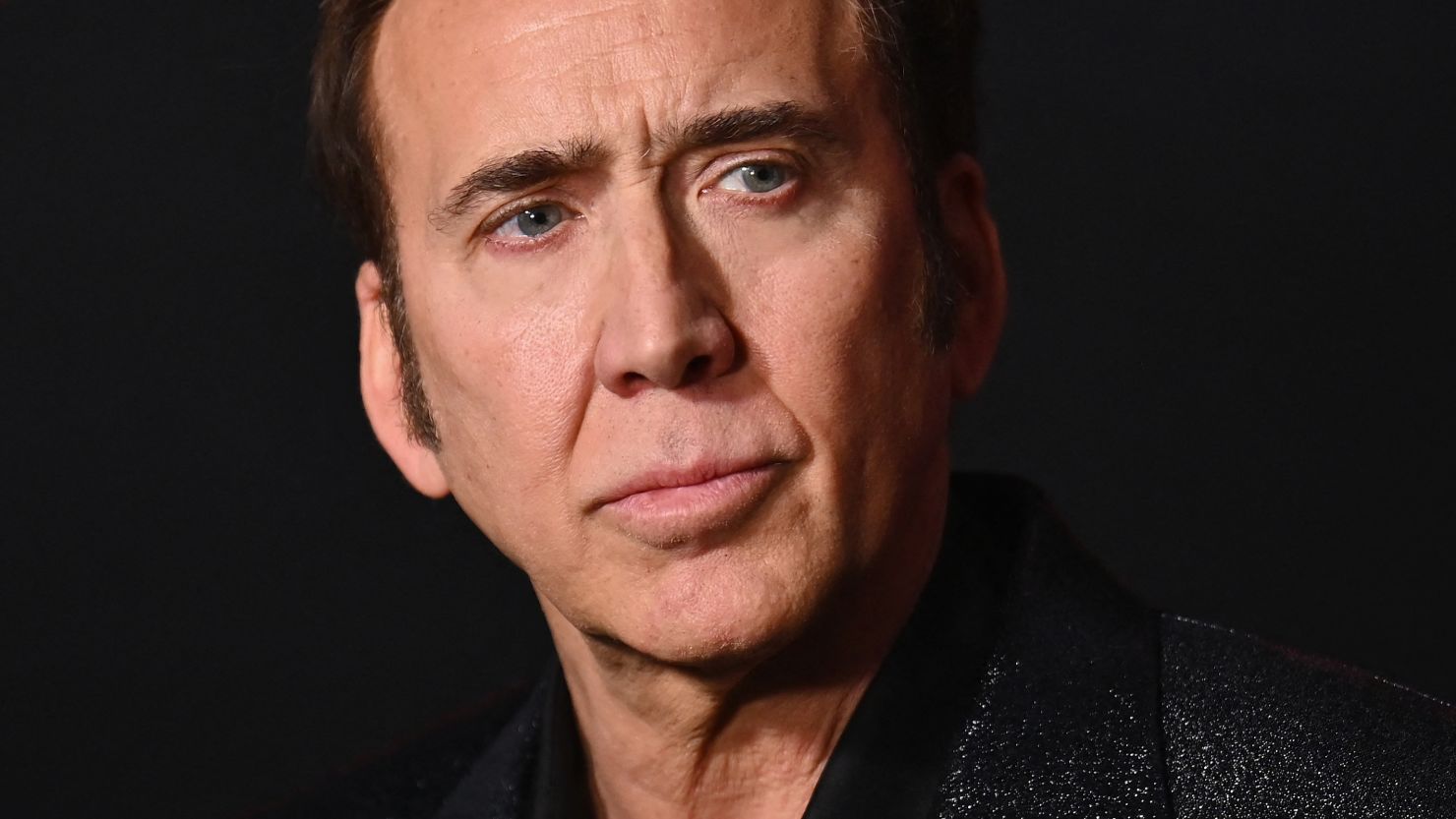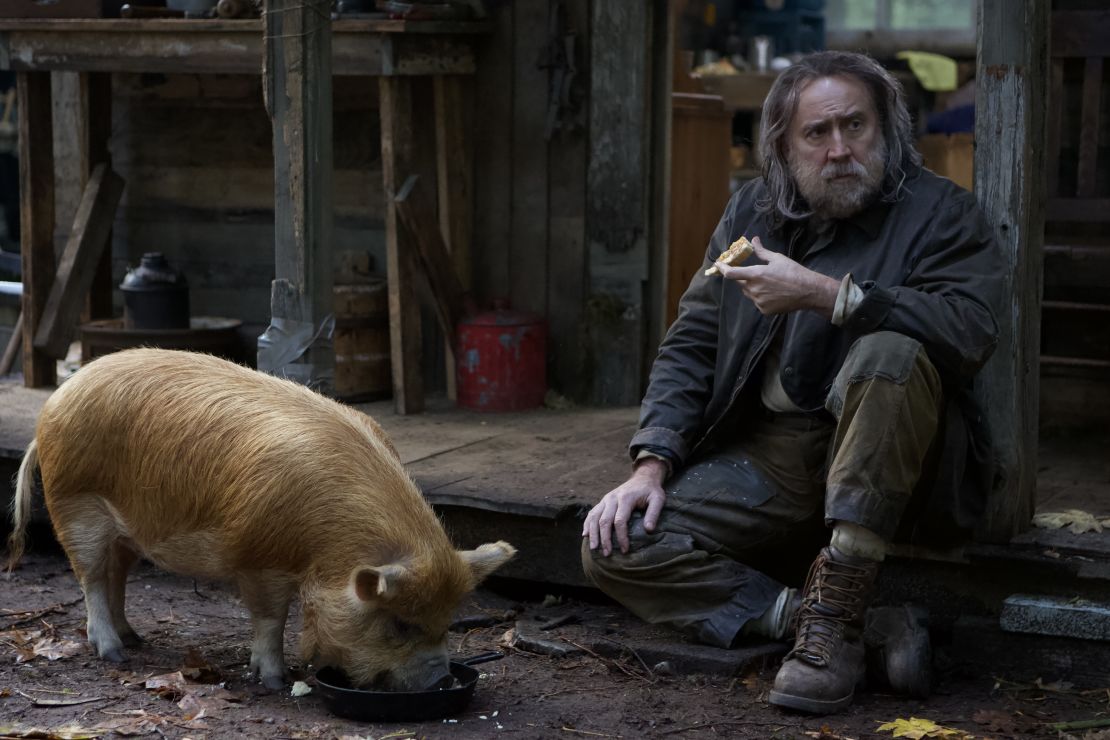Nicolas Cage did not choose the meme life. The meme life chose him.
The Oscar-winner, he of big acting swings and erratic yet prolific output, is fully aware of what you’re posting about him online. He’s seen the “Nicolas Cage Losing His Shit” compilation video and the other internet detritus that has contributed to his “memefication” (his word). Cage, 59, is not angry, but he is curious about the phenomenon.
“I think I might have been the first actor that experienced (this),” he said in a recent video interview with CNN. “It just started growing exponentially and compounding on itself and there was nothing I could do to stop it.”
“It wasn’t why I got into making movies,” Cage added, only a touch forlorn.
It must be said: many of us have been guilty of jumping on the most asinine takes and drawing the wrong conclusions about this earnest performer, with this writer being no exception. When Cage’s “Renfield” co-star Nicholas Hoult mentioned in an interview earlier this year that the actor had based his Dracula on Anne Bancroft in “The Graduate,” my headline could not have been more locked in if I’d carved it in stone.
There’s something undeniably funny about Cage and the sincerity with which he describes his craft sometimes. Particularly when those words are juxtaposed against the sight of him as a delusional literary agent running through the streets of New York hollering, “I’m a vampire, I’m a vampire!” in 1988’s “Vampire’s Kiss.” Or screaming “Not the bees!” as he’s tormented by a cult in “The Wicker Man” from 2006. Or literally any moment he’s channeling John Travolta in 1997’s perennial action classic “Face/Off.” But if we think Nicolas Cage does not demand to be taken seriously, it’s only because we’ve made it so. The internet has shrunken our aperture and reduced him to his most absurd. We forget he has serious chops (see: “Raising Arizona,” “Adaptation.,” “Bringing out the Dead,” “Wild at Heart,” his Oscar-winning turn in “Leaving Las Vegas,” “Moonstruck”… the list goes on).
But recently, there’s been something of a Cage reappraisal. First there was “Pig” (2021), in which he went dramatic as a traumatized chef, followed by last year’s “The Unbearable Weight of Massive Talent,” a meta comedy in which he wrestled with his own celebrity by playing an outlandish version of himself.
Now we have “Dream Scenario,” combining both Cage the celebrity whose fame stalks and distorts him, and Cage the self-described thespian.

In Kristoffer Borgli’s satire, he plays unremarkable academic Paul, who wakes up one morning to learn people have been dreaming about him. Family, friends, students and complete strangers. As the public begins to connect the dots and discovers he’s real, Paul embraces his newfound fame, appearing in interviews and meeting with an agency who want him to front advertising campaigns. Paul’s great aspiration, however, is to find a publisher for his book on ants. But when everyone’s dreams of Paul take a turn, so do Paul’s real-life fortunes, as he’s forced to carry the can for his dream-state behavior.
Cage and I are talking over Zoom. It turns out the internet can also deliver the actor unfiltered and unmemed. He’s loquacious and candid, eager to discuss what he calls “one of the best” performances of his career. “It’s in that mode where I felt like I was acting less and being more,” he said. “(In ‘Pig’ – another favorite entry of his within his sprawling oeuvre) I felt like I had access to my emotions. In ‘Dream Scenario,’ I felt that I could apply my life experiences.”
He says before he learned of his own viral fame, he “wasn’t very familiar with what you could do with the internet” (he cites T-shirts and Photoshopping without elaboration). Seeing his performances remixed for clicks wouldn’t have been on Cage’s career wish list when chasing his first credits in the early ’80s. Yet once the work’s in public hands, you can’t make a claim on how it’s interpreted. Being at peace with that lack of control is another matter though.
“When I read this script, I thought, ‘Well, I think I understand what Paul feels like,’” said Cage. “I’ll just apply those feelings towards this character.”
Paul is woefully unprepared for the world he’s entering, but just egotistical enough to think he can steer the runaway train that is his celebrity.
“Fame is something that everyone can experience now, both positive and negative,” Cage mused, and “we all know that it can go in many different directions.”
“The feelings are profound,” he added, likening it to his past gambling (the actor says he’s quit). “It was like, ‘Wow, I’m on top of the world’ when you won something. But when it turns on you, when you lose, that feeling is more profound that the feeling of winning. And I think you see that in ‘Dream Scenario’ … I think there’s some truth in this movie.”
As much a lampoon of fleeting celebrity as cancel culture, the film is not just laugh-out-loud funny, but wincingly so. Watching Paul bungle an affair and a meeting with his academic rival is excruciating, thanks to a game Cage. But when circumstances make him an outcast, the plot – if not the tone – veers towards ’70s paranoid thriller. Paul is reluctant to enter the culture wars but is advised to take “the Jordan Peterson route” and lean into his notoriety. It turns out there’s an equally well-maintained path to fame lurking on the underside of the one he’d previously been walking.
In poking fun at cancel culture and the backlash against it, is there a danger the film could be co-opted by some of the same people it’s satirizing?
“I can’t really answer that question. I didn’t really see it in those terms either,” said Cage. Later he added, “the audience is going to determine whatever they want to determine. And how they receive it, they’re not wrong. It’s up to them.”
Cage reminded me that though there’s parallels between his life and Paul’s, the film is not his baby, it’s Borgli’s. The writer-director, he says, was more interested in bringing to life the ideas of Swiss psychoanalyst Carl Jung, particularly the collective unconscious. “All our brains are communicating so fast now, with whatever means, whether it’s the phones and computers we all have in our hands, that it’s becoming a kind of reality,” said the actor of this tech-enabled manifestation.

If the film’s conclusion offers little comfort for anyone either seeking or avoiding their 15 minutes of fame, at least Cage can find solace in his performance here. With well over 100 screen credits to his name, he’s never done anything quite like this before.
“I’m trying to get more personal in the choices I make in terms of filmmaking,” he said. “I feel like if I can get more personal, it becomes more of a connection with the audience.”
“My best moments going to the cinema were the moments where I could relate to the character and feel like I was in on the secret that that character was experiencing, whether it was James Dean in ‘East of Eden’ or whoever,” Cage recalled. “I felt it was our own private connection, our own communication between the film performance and the audience member.”
“With ‘Pig’ and ‘Dream Scenario,’ I felt like I was giving the audience something – that secret connection,” he added.
As is his wont, Cage has a long list of projects in the pipeline. Who knows which, if any, will match this quality. Who knows where that secret connection will next be forged. Though one thing seems certain: it won’t be through a damned meme.
“Dream Scenario” is released in the UK and on limited release in the US on November 10, before going nationwide on November 22.




